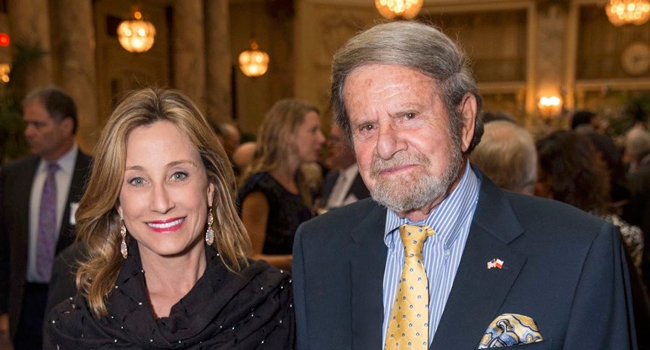Submitted on May 21, 2018

Tad Taube never does anything halfway.
Concerned that the Holocaust overshadowed the centuries-long history of Jewish culture in Poland, Taube – a Jewish native of Krakow who escaped at age 8 just before the Nazis overran his country – exercised his considerable philanthropic influence. POLIN Museum of the History of Polish Jews, for which Taube raised $16 million to help build, opened on the site of the former Warsaw Ghetto in 2011.
So it’s not terribly surprising that after meeting Peter Carroll, MD, professor and chair of UCSF’s Department of Urology, Taube soon took a strong interest in advancing Carroll’s work. He recently committed to a $5 million irrevocable bequest to support a distinguished professorship – the Department of Urology’s largest single distinguished professorship to date – for which Carroll is the inaugural recipient.
“My roots with UCSF are very deep, and people I have close relationships with also have given to UCSF,” Taube says.
Taube built a career in real estate, founding the Belmont, Calif.-based Woodmont Companies, a diversified real estate investment and management corporation. He also served as chairman and CEO of Koracorp Industries, a women’s clothing manufacturer, in the 1970s until it was purchased by Levi Strauss & Co.
Taube’s history of giving to UCSF stretches back nearly four decades. As former president of the Koret Foundation and chairman of his own Taube Philanthropies, he orchestrated gifts to numerous UCSF programs and individuals over the years, including support for Huntington’s disease, neurodegenerative disease, cancer, heart disease, and neurosurgery.
Taube was impressed with Carroll and his team’s “active surveillance” approach to prostate cancer. Because many prostate cancer tumors are small, confined, and slow-growing, they don't always require immediate treatment. Active surveillance focuses on closely monitoring patients, identifying early signs of disease progression, and treating the cancer before it spreads outside the prostate.
“I became very interested in his work, particularly the idea of not over treating patients,” he says. “Peter is a surgeon and urologic oncologist, but he’s also a scientist and scholar. He’s very interested in the research aspects of medicine.”
“Making an impact” is the centerpiece of Taube’s philanthropic philosophy. He says such impact can be global if the research results in a state-of-the-art solution, or it can be regional, like a hospital.
“Supporting a leading prostate center adds or enhances a capability that’s going to multiply its impact, making something that’s already great even better,” Taube says. “A lot of money is launched into the philanthropic space every year that has no impact whatsoever. If we’re going to support an organization or an individual or an initiative, we want to have the sense up front that we’re going to make a difference.”